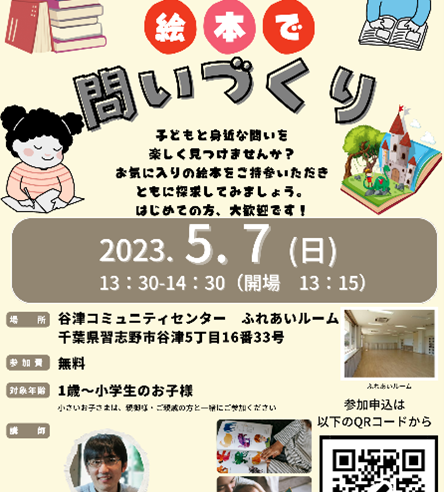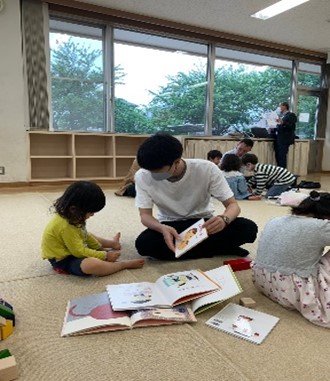Exploratory Epistemic Justice and Question-Making Practices
18 September 2023
In questioning practices, people not only ask questions but also contemplate how their questions can be precisely expressed and attempt to discover a right question. For instance, we may confront situations that compel us to wonder, “How can I express what I want to tell?” or “Why only me?” in a rage. In these cases, we conduct inquiries that do not always involve already having fully formed questions to formulate a proper question.[1] The exploratory modes of questioning are crucial for inquirers to initiate questioning rather than to engage in or facilitate it.
Exploratory justice is an epistemic virtue that seeks to equitably treat people in their capacity as questioners who engage in exploratory modes of questioning. On an individual level, it is an individual virtue that motivates possessors to be attentive to the inquiries that questioners want to make and assist them in articulating their experiences and accompanying emotions in the form of questions. For instance, caring educators can guide children’s questioning by considering the possibility that their difficulty in forming questions could stem from their unfamiliarity with the practice of asking questions. At the institutional level, exploratory justice is a regulatory ideal; it can manifest as norms and procedural structures of institutions that allow everyone an equitable chance to engage in the exploratory modes of questioning. To illustrate a formal procedural structure that manifests exploratory justice, I will later explain parts of the curriculum that focus on question-making practices.
The objectives of exploratory justice are twofold. First, it serves the educational purpose of enabling individuals to become proficient questioners. The assumption is often made, that in questioning practices, everyone possesses the capacity to engage effectively. However, it is evident that not everyone—perhaps no one—is innately endowed with such capacities to properly formulate questions. Children might be unfamiliar with the act of asking questions and might shy away from doing so when they are in dialogue with others.[2] Likewise, they may become stuck due to overthinking issues such as “Is this a misguided question?” or “Could my question be so irrelevant that it disrupts the other person’s train of thought?” This suggests that educators should equip children with questioning skills and foster their epistemic self-trust as questioners.
The second objective of exploratory epistemic justice is to ameliorate epistemically corrupt environments. Certain people might have been epistemically wronged in their capacity as questioners due to unjustified gender-based divisions of labor, patriarchal norms, an ableist social system, the ideology of white supremacy, and so on. This constitutes an instance of exploratory injustice. For example, minorities and socially powerless groups might not be adequately heard, thus being deprived of opportunities to articulate their questions and express their voices linguistically. Despite their strong interest in making their thoughts intelligible and conveying them to others, they might undergo experiences and accompanying emotions that are only partially understood by those perpetrating such injustices. Similarly, they might worry about the prospect of being disregarded or deliberately misunderstood by excessively inattentive majorities and the privileged. Fricker (2007) viewed epistemic injustice as a wrong that mistreats people due to prejudicial stereotypes and thus denigrates their capacities as epistemic agents (e.g., testifiers). Based on this perspective, I propose that exploratory injustice is a wrong that prevents people from engaging in the exploratory modes of questioning due to the perpetrators’ prejudicial stereotypes or asymmetrical power relationships.
What harm does exploratory injustice cause? Primarily, it thwarts people’s capacity to make questions. More significantly, those who are constantly subjected to exploratory injustice might lose their epistemic self-trust and even convince themselves that they are ill-suited for questioning. If people are repeatedly ignored or deliberately misunderstood by malicious interlocutors, they might internalize a distorted self-image imposed by these individuals. This can lead to their loss of self-trust and even convince them that they lack the competence to ask questions, thereby eroding their potential to learn, to own their questions, and flourish as questioners.
Indeed, not everyone suffers from exploratory injustice. Still, if the idea of exploratory justice spreads as part of institutional policies not only at school but also in the community, it has the potential to empower children and citizens alike to develop their questioning skills and self-trust and to see themselves as competent agents capable of pursuing the truth through questioning (Sato 2023).[3]
I believe that question-making practices can serve to extend this form of exploratory justice to all and contribute to establishing exploratory justice in the whole community.[4] Based on my observations, I propose that there are two key components of question-making practices.
First, question-making practices commence with people transforming inarticulate voices into questions. An incomplete expression that has not yet evolved into a complete question refers to a linguistic statement whose meaning is yet to be comprehended. Obviously, the articulation of participants’ voices does not always take the form of a question. Nevertheless, within the context of question-making practices, participants are expected to focus on articulating their voices as questions. More importantly, participants engage with the questions of their peers, fostering an environment in which they are motivated to express the thoughts they wish to inquire about in the form of questions. This entails being receptive to the context, unease, hesitancy, and acceptance of others when shaping their own questions.
Second, question-making practices encourage people to voice the questions that come to their minds without evaluating their goodness or badness. I call this practice “question scattering.” This may be analogous to brain storming with questions. According to a psychological study, the peak age for asking questions is between three and four years; afterward, the number of questions declines. It is important for those who are not used to questioning to realize that question-making practices are a kind of extension of everyday communication. For instance, I provide Japanese students, who have not had much educational experience of questioning, with the following instruction: “Ask questions as if you were three years old.” This can create the atmosphere of “pretend play” (a sophisticated form of playing a question-making game), which allows participants to liberate themselves from nervousness and embarrassment without worrying too much that they might miss the point. Furthermore, question scattering allows participants to freely change the position of their bodies and talk to each other about their questions. In small-group dialogues, participants are naturally disposed to turn their bodies toward the speakers so that they are attentive to what is being said, while the speakers are encouraged to express their questions in a way that can be understood by such listeners.
References
Fricker, M. (2007). Epistemic Injustice. Oxford: OUP.
Sato, K. (2016). “A Sensitivity to Good Questions: A Virtue-Based Approach to Questioning.” Episteme, 13(3): 329–341.
Sato, K. (2023). “Good Learning and Epistemic Transformation.” Episteme, 20(1): 181–194.
[1] See Sato (2016) for the relationship between exploratory modes of questioning and inquiry.
[2] I was such a person, and this has motivated me to study the significance of putting one’s own obscure experiences and emotions in the form of questions.
[3] Question-making practices can be developed into other kinds of epistemic practice, such as responding to others’ questions and teaching argumentation skills to delve into a topic of choice.
[4] My view of question-making practices has evolved by developing the question formulation method of the Right Question Institute in Boston, USA.
A workshop on question-making practices for small children


A poster for the question-making workshop

- December 2024
- November 2024
- October 2024
- September 2024
- August 2024
- July 2024
- June 2024
- May 2024
- April 2024
- March 2024
- February 2024
- January 2024
- December 2023
- November 2023
- October 2023
- September 2023
- August 2023
- July 2023
- June 2023
- May 2023
- April 2023
- March 2023
- February 2023
- January 2023
- December 2022
- November 2022
- October 2022
- September 2022
- August 2022
- July 2022
- June 2022
- May 2022
- April 2022
- March 2022
- February 2022
- January 2022
- December 2021
- November 2021
- October 2021
- September 2021
- August 2021
- July 2021
- June 2021
- May 2021
- April 2021
- March 2021
- February 2021
- January 2021
- December 2020
- November 2020
- October 2020
- September 2020
- August 2020
- July 2020
- June 2020
- May 2020
- April 2020
- March 2020
- February 2020
- January 2020
- December 2019
- November 2019
- October 2019
- September 2019
- August 2019
- July 2019
- June 2019
- May 2019
- April 2019
- March 2019
- February 2019
- January 2019
- December 2018
- November 2018
- October 2018
- September 2018
- August 2018
- July 2018
- June 2018
- May 2018
- April 2018
- March 2018
- February 2018
- January 2018
- December 2017
- November 2017
- October 2017
- September 2017
- August 2017
- July 2017
- June 2017
- May 2017

